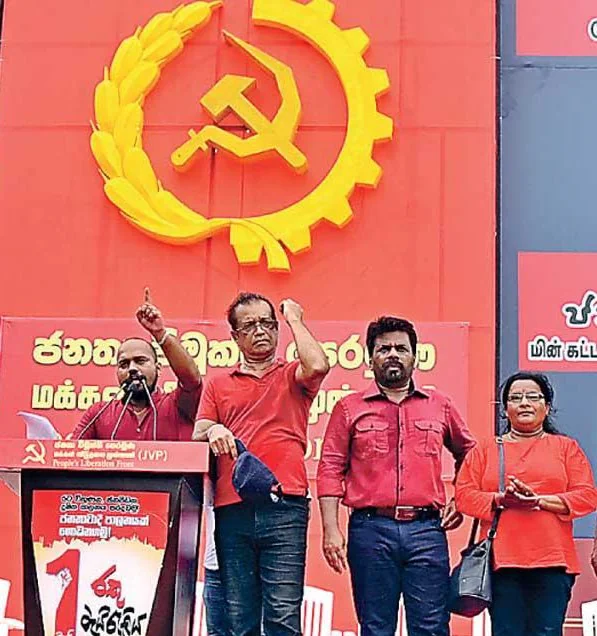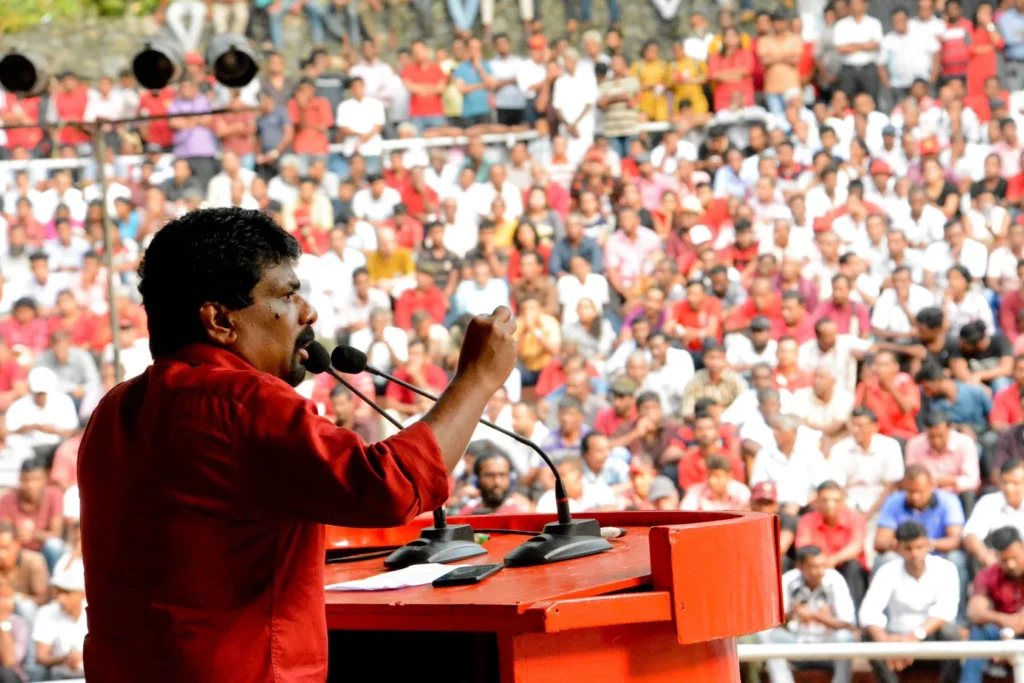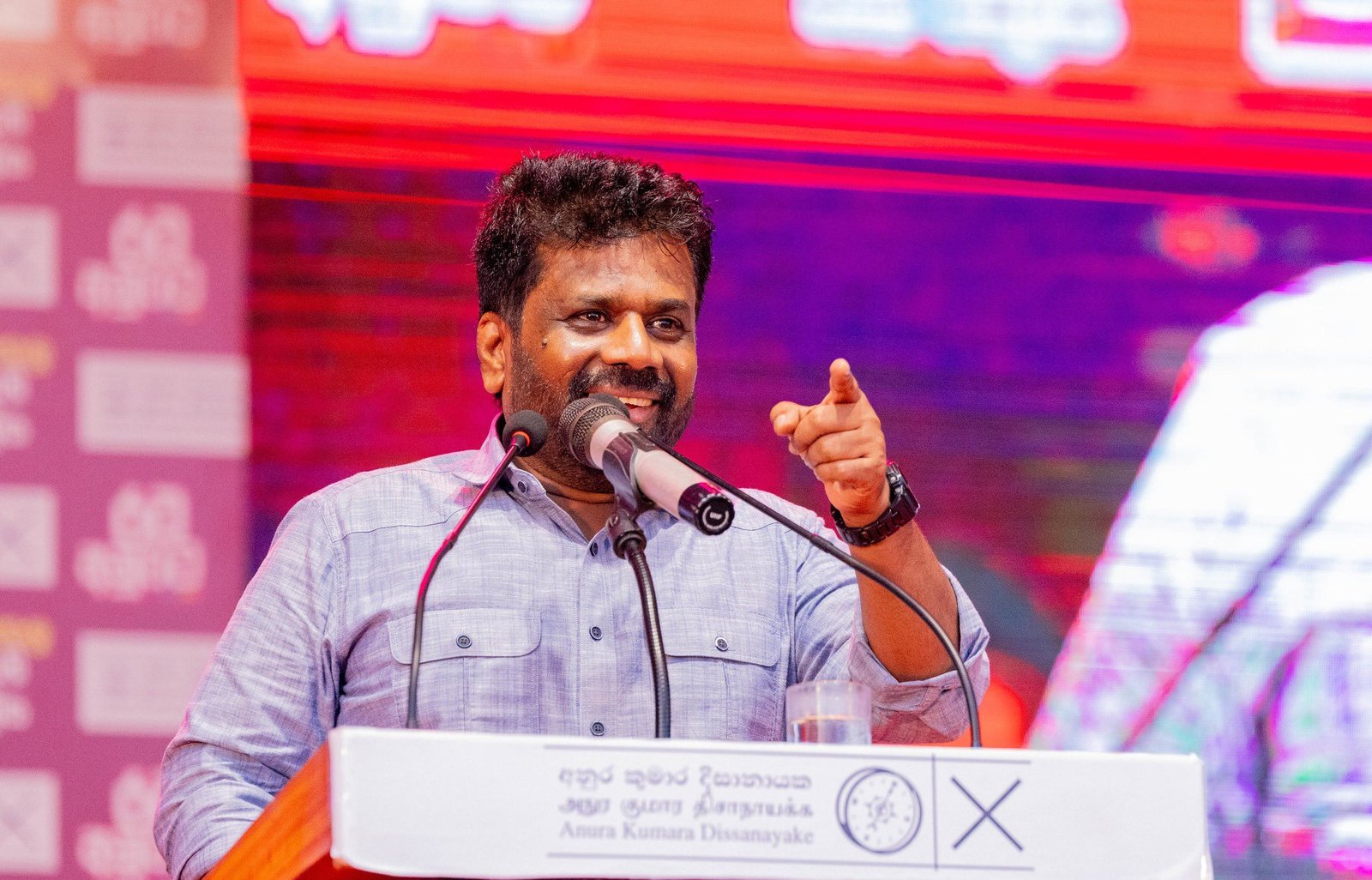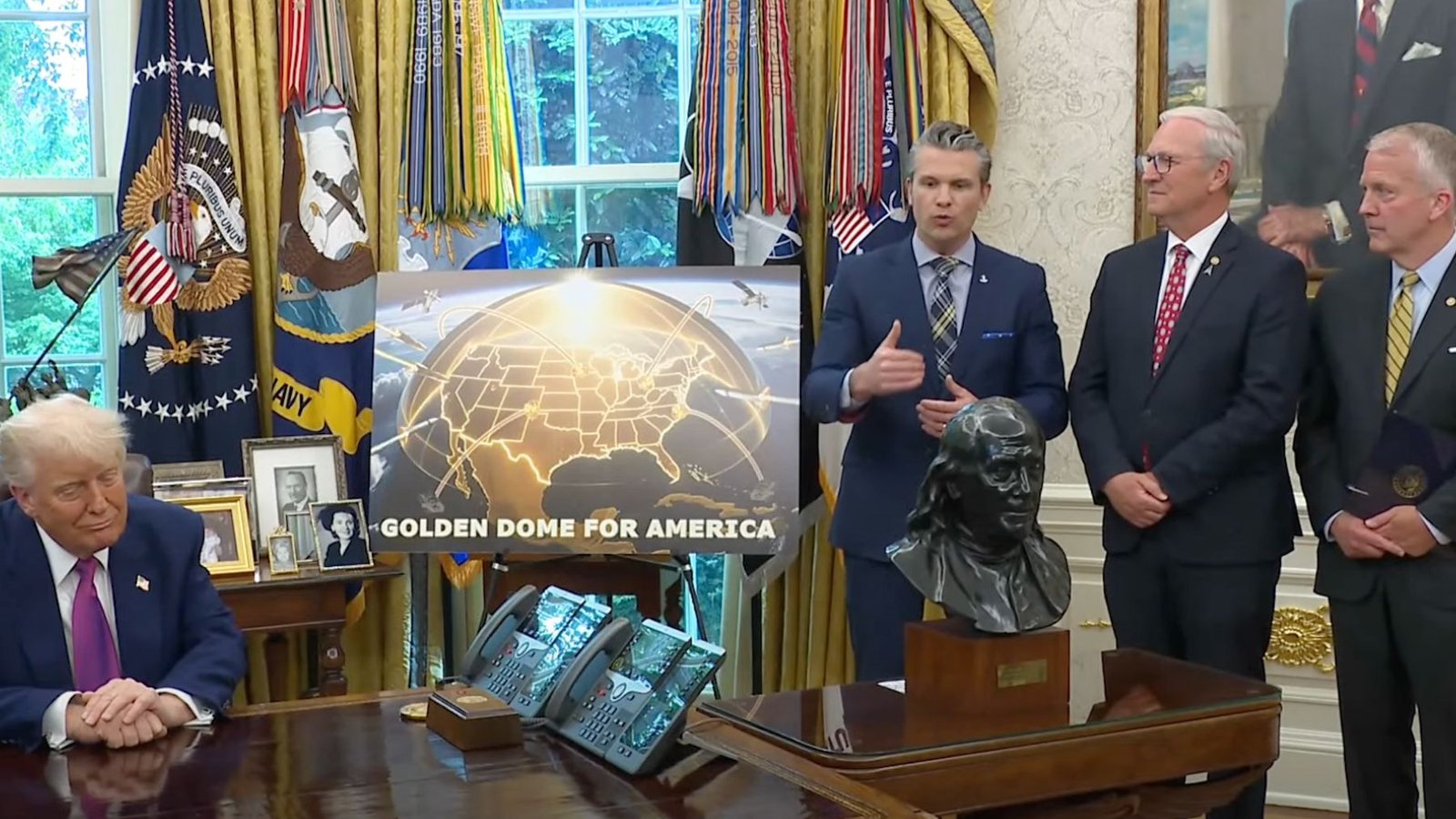The recent election of Anura Kumara Dissanayake as Sri Lanka’s new president on September 23, 2024, marks a significant shift in the country’s political landscape. As the leader of the Janatha Vimukthi Peramuna (JVP) party, Dissanayake’s rise to the presidency represents a departure from the traditional political dynasties that have dominated Sri Lankan politics for decades.
The 55-year-old emerged victorious following an unprecedented second round of counting that included votes cast according to second preferences, defeating opposition leader Sajith Premadasa, who was his closest challenger. Ranil Wikremesinghe, the outgoing president, came in third.

Dissanayake’s Political Journey and Appeal
The political journey of Anura Kumara Dissanayake has been marked by his consistent advocacy for social justice, economic reforms, and anti-corruption measures. His election comes at a crucial time for Sri Lanka, as the nation continues to grapple with the aftermath of a severe economic crisis that peaked in 2022. The new president’s approach to governance and his plans for economic recovery will be closely watched both domestically and internationally.
Anti-Corruption Stance and Campaign Promises
One of the key factors that likely contributed to the electoral success of Anura Kumara Dissanayake is his party’s long-standing reputation for being relatively untainted by corruption scandals. In a country where political corruption has been a persistent issue, this clean image resonated with voters seeking a break from the past. Dissanayake’s campaign promises of transparency and accountability in government operations struck a chord with a populace weary of financial mismanagement and nepotism.
Economic Vision and Challenges
Dissanayake’s main goal as president is to bring stability and economic functionality back to a nation still suffering from a protracted crisis.
The Pro-poor economic policies proposed by Anura Kumara Dissanayake during his campaign focused on sustainable development, diversification of the economy, and reducing dependency on foreign loans. His emphasis on strengthening local industries and promoting self-sufficiency aligns with a growing sentiment among Sri Lankans for more robust and independent economic strategies. However, the implementation of these policies will face significant challenges, given the country’s substantial debt burden and the need for continued international support.

Recalibrating Foreign Relations
On the international front, Dissanayake’s presidency may signal a recalibration of Sri Lanka’s foreign relations. Historically, the JVP has been critical of what it perceives as excessive foreign influence in Sri Lankan affairs. This stance could lead to a more balanced approach in dealings with major powers like India, China, and the United States. The new administration’s ability to navigate these complex geopolitical waters will be crucial for Sri Lanka’s economic recovery and regional stability.
Addressing Ethnic Tensions and National Reconciliation
Domestically, one of the most pressing issues facing the new Sri Lankan president Anura Kumara Dissanayake will be addressing the long-standing ethnic tensions in the country. Dissanayake’s approach to national reconciliation and his policies towards minority communities, particularly the Tamil population, will be critical in shaping Sri Lanka’s social fabric in the coming years. His past statements advocating for a more inclusive society provide hope for progress in this area, but concrete actions will be necessary to build trust among all communities.
Environmental Policies and Sustainable Development
The environmental policies of the new administration are also likely to receive significant attention. Given the JVP’s historical emphasis on sustainable development, expectations are high for more robust environmental protection measures and a push towards renewable energy sources. This could position Sri Lanka as a regional leader in green initiatives, potentially attracting eco-friendly investments and tourism.

Challenges and Expectations
However, Dissanayake’s presidency is not without its challenges. The JVP’s transition from an opposition party to the ruling party will require a significant shift in approach. The new administration will need to balance its ideological positions with the pragmatic demands of governance, particularly in areas such as economic policy and international relations.
Moreover, the expectations placed on Dissanayake’s presidency are immense. After years of economic hardship and political turmoil, the Sri Lankan people are looking for swift and effective changes. Managing these expectations while implementing sustainable, long-term solutions will be a delicate balancing act for the Sri Lanka’s new president.
Conclusion: A Transformative Moment for Sri Lanka
In conclusion, Anura Kumara Dissanayake’s election as Sri Lanka’s president represents a potentially transformative moment in the nation’s history. His presidency offers the promise of a new political era, characterized by transparency, economic reform, and social justice. However, the road ahead is fraught with challenges, both domestic and international. The success of this new chapter in Sri Lankan politics will depend on Dissanayake’s ability to translate his campaign promises into effective governance, navigate complex global relationships, and unite a diverse nation under a common vision for the future. As Sri Lanka embarks on this new journey, the world watches with keen interest to see how this change in leadership will shape the destiny of this resilient island
















Blue Techker This was beautiful Admin. Thank you for your reflections.
Houzzmagazine I really like reading through a post that can make men and women think. Also, thank you for allowing me to comment!
Noodlemagazine I’m just starting out with blogging, and I really admire your work. This article especially piqued my interest. I’ll bookmark your site and return for new updates regularly.